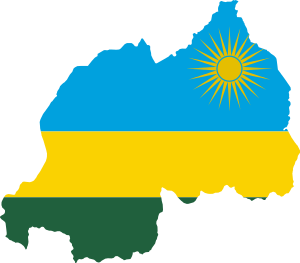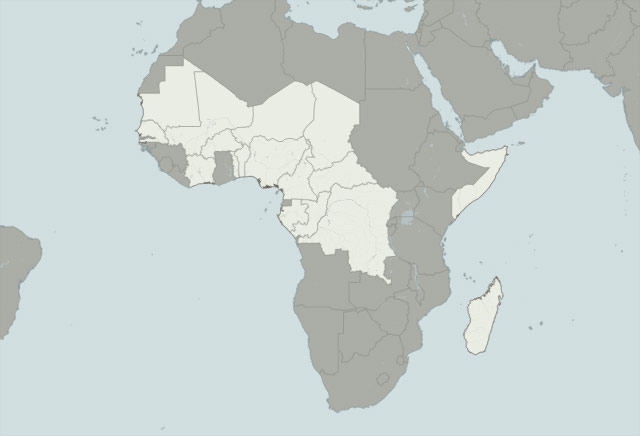 Image via Wikipedia
Image via WikipediaRwandese People's Front supporters at Kigali's Amahoro Stadium during the launch of President Paul Kagame's re-election campaign for the polls.
In most election campaigns, candidates try their best to explain what they would do better than the incumbent.
But in Rwanda, voters would be hard pressed to tell one programme from another.
After almost two weeks of campaigning, President Paul Kagame and his three challengers sound almost identical, advocating the country’s economic transformation and social unity.
“Change” is not a popular slogan at campaign rallies for any of the four contestants, leaving little doubt that Mr Kagame, who has ruled Rwanda since his rebel group ended the 1994 genocide against Tutsi minority, will keep his job.
When his two-million-dollar campaign bandwagon rolls into Rwandan towns, many of Kagame’s election pledges are the same as those voters heard before he was first elected in 2003, winning 95 percent of the vote.
President Kagame promises better access to health, education and electricity, vows to battle poverty and corruption, build roads and promote agro-industry to enable “every Rwandan to have money in his pocket.”
He also insists on the “pride to be Rwandan” and his commitment to consolidating the reconciliation process following the death of 800,000 people, mainly Tutsis, at the hands of extremist Hutus in 1994.
The very same words can be heard at the more modest rallies for the Social Democratic Party’s Jean-Damascene Ntawukuriryayo, Liberal Party’s Prosper Higiro or the Party of Progress and Concord’s Alvera Mukabaramba. National University of Rwanda professor Pierre Rwanyindo Ruzirabwoba — who also chairs the Institute of Research and Dialogue for Peace — acknowledged that “their speeches are similar with only minor differences.”
Speaking in Kinyarwanda on state-run Radio Rwanda, he attributed the campaign’s striking unison to the fact that all four candidates “take part in the country’s governance.”
Critics argue that the three challengers — who include the parliament’s deputy speaker and the senate’s vice president — are all the dummies of chief ventriloquist Kagame and that multipartism is an illusion.
“The regime is pretending to consult the people,” said Victoire Ingabire, an opposition politician who was arrested in April.
“His ultimate goal is to retain the power he took, kept and defended by force.
“His ultimate goal is to retain the power he took, kept and defended by force.
‘‘This electoral mascarade is a smokescreen for international opinion,” she said in a statement.
Despite a string of damning reports by watchdogs on the state of human rights and political freedom in Rwanda, the small central African country remains a darling of the western aid community.
Mr Kagame counts former British premier Tony Blair as well as several other world-renowned experts among his advisers and official criticism of Rwandan authoritarianism has been generally muted.
Out of the race
Members of the “real opposition” are out of the race in more ways than one. Ingabire, a Hutu, is being sued on charges of terrorism and negating genocide — notably after asking for an acknowledgement of Hutu suffering during the 1994 events -- and is under house arrest.
She had announced her intention to run in the August 9 presidential election but her party was never granted an official registration, a fate also suffered by another small party.
Deo Mushayidi, a young Tutsi who once belonged to Kagame’s ruling Rwandan Patriotic Front, was jailed on charges of attempting to raise an army against Kagame. His trial started last week.
The vice chairman of the unregistered opposition Democratic Green Party was found dead last month, nearly decapitated




















